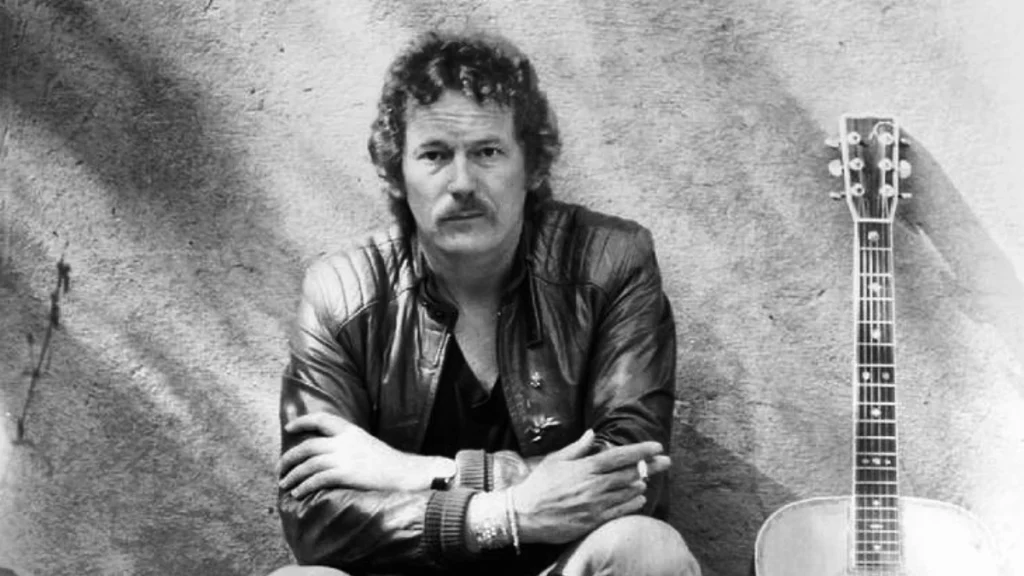
The Timeless Lament of the Great Lakes: Gordon Lightfoot’s “The Wreck of the Edmund Fitzgerald”
Released in 1976, Gordon Lightfoot‘s haunting ballad, “The Wreck of the Edmund Fitzgerald,” stands as a poignant tribute to one of the most tragic maritime disasters on the Great Lakes. The song chronicles the real-life sinking of the SS Edmund Fitzgerald on November 10, 1975, in Lake Superior. All 29 crew members tragically lost their lives, and this event captured national attention. Lightfoot’s composition quickly resonated with listeners, climbing to number two on the Billboard Hot 100 chart, and cementing its place in folk-rock history.
Lightfoot was inspired by a Newsweek article about the disaster, crafting a narrative that blends journalistic detail with poetic imagery. The song paints a vivid picture of the ship’s final voyage, with its evocative lyrics and somber melody. It serves not only as a memorial to those who perished but also as a reflection on human vulnerability against nature’s immense power. The track is part of Lightfoot’s album “Summertime Dream,” which marked a high point in his illustrious career.
Reflecting on this classic tune transports one back to a time when songs were storytellers, and artists like Lightfoot were revered for their ability to weave history into music. For those who grew up listening to AM radio or flipping through vinyl records, “The Wreck of the Edmund Fitzgerald” is more than just a song; it is an auditory time capsule that encapsulates a moment of shared mourning and respect for the might of the Great Lakes.
The song’s opening notes instantly evoke images of churning waters and stormy skies. As Lightfoot’s voice unfolds the tale, older listeners might recall sitting by the fire or driving along winding roads, contemplating the vastness of life’s journey mirrored in Lake Superior’s depths. His voice carries the weight of sorrow without sensationalism, offering instead a solemn acknowledgment of life’s unpredictability.
In today’s digital age, where music often flits by as background noise, revisiting Lightfoot’s meticulous storytelling reminds us of music’s power to educate and memorialize. The song is a testament to how art can immortalize real events, ensuring that stories like that of the Edmund Fitzgerald endure beyond mere headlines.
“The Wreck of the Edmund Fitzgerald” remains an enduring piece because it strikes at our collective consciousness—reminding us that beneath every wave lies untold stories of bravery and loss. For those who remember its release, it brings back memories not just of where they were but also of what they felt—a testament to music’s unparalleled ability to connect us through shared experience and emotion.
🎵 Let’s sing along with the lyrics! 🎤
The legend lives on from the Chippewa on down
Of the big lake they call Gitche Gumee
The lake, it is said, never gives up her dead
When the skies of November turn gloomy
With a load of iron ore twenty-six thousand tons more
Than the Edmund Fitzgerald weighed empty
That good ship and true was a bone to be chewed
When the gales of November came early
The ship was the pride of the American side
Coming back from some mill in Wisconsin
As the big freighters go, it was bigger than most
With a crew and good captain well seasoned
Concluding some terms with a couple of steel firms
When they left fully loaded for Cleveland
And later that night when the ship’s bell rang
Could it be the north wind they’d been feelin’?
The wind in the wires made a tattle-tale sound
And a wave broke over the railing
And every man knew, as the captain did too
T’was the witch of November come stealin’
The dawn came late and the breakfast had to wait
When the gales of November came slashin’
When afternoon came it was freezin’ rain
In the face of a hurricane west wind
When suppertime came, the old cook came on deck sayin’
“Fellas, it’s too rough to feed ya”
At 7 PM, a main hatchway caved in, he said
“Fellas, it’s been good to know ya”
The captain wired in he had water comin’ in
And the good ship and crew was in peril
And later that night when his lights went outta sight
Came the wreck of the Edmund Fitzgerald
Does any one know where the love of God goes
When the waves turn the minutes to hours?
The searchers all say they’d have made Whitefish Bay
If they’d put fifteen more miles behind her
They might have split up or they might have capsized
They may have broke deep and took water
And all that remains is the faces and the names
Of the wives and the sons and the daughters
Lake Huron rolls, Superior sings
In the rooms of her ice-water mansion
Old Michigan steams like a young man’s dreams
The islands and bays are for sportsmen
And farther below Lake Ontario
Takes in what Lake Erie can send her
And the iron boats go as the mariners all know
With the gales of November remembered
In a musty old hall in Detroit they prayed
In the maritime sailors’ cathedral
The church bell chimed ’til it rang twenty-nine times
For each man on the Edmund Fitzgerald
The legend lives on from the Chippewa on down
Of the big lake they call Gitche Gumee
Superior, they said, never gives up her dead
When the gales of November come early